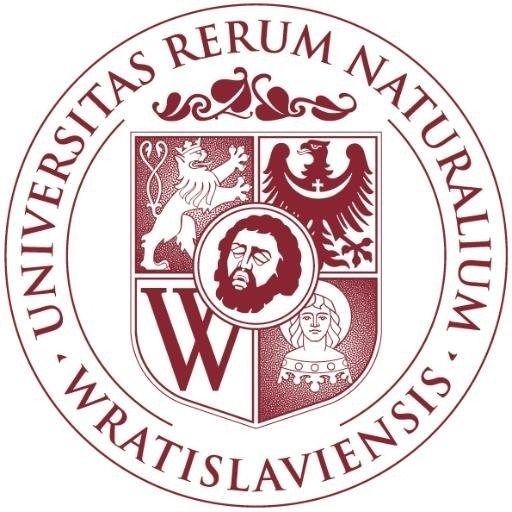Photos of university / #uni.lu
Program Title: Small Animal Veterinary Medicine
Program Description: The Small Animal Veterinary Medicine program at the University of Luxembourg is designed to prepare students for a professional career in the diagnosis, treatment, and prevention of diseases in small animals, including companion animals such as cats and dogs. This comprehensive program combines theoretical knowledge with practical skills to foster competent and compassionate veterinarians capable of addressing complex health issues in small animals. Throughout their studies, students will explore a wide range of topics including animal anatomy and physiology, pharmacology, diagnostic techniques, surgical procedures, and animal husbandry. Emphasizing the importance of animal welfare and ethical considerations, the curriculum strives to cultivate responsible veterinary practitioners who can contribute effectively to animal health and welfare within their communities.
The program offers a multidisciplinary approach, integrating clinical sciences, research methodologies, and communication skills to ensure graduates are well-equipped for the challenges of veterinary practice. Students will engage in hands-on training through clinical rotations in laboratories, animal hospitals, and partner clinics, providing valuable real-world experience under the supervision of experienced faculty members. The program also emphasizes the importance of lifelong learning and research, encouraging students to contribute to advancements in veterinary medicine and animal health sciences.
By fostering an international and collaborative educational environment, the program prepares graduates to work in diverse settings, including private clinics, animal shelters, research institutions, and regulatory agencies. The degree awarded upon successful completion signifies a high level of professional competence and dedication to animal welfare. Graduates of the Small Animal Veterinary Medicine program will be equipped with the knowledge, skills, and ethical grounding necessary to provide exemplary care to small animals, promote responsible pet ownership, and support the broader One Health initiative linking animal health, human health, and environmental health.
The Small Animal Veterinary Medicine program at the University of Luxembourg offers a comprehensive and rigorous curriculum designed to prepare students for a successful career in small animal healthcare. This program aims to develop a deep understanding of the anatomy, physiology, and pathology of small animals, equipping students with the essential knowledge and practical skills needed to diagnose, treat, and prevent a wide range of medical conditions. Throughout the program, students engage in extensive coursework covering core topics such as animal biology, pharmacology, surgical techniques, anesthesiology, radiology, and animal behavior. The curriculum emphasizes both theoretical foundations and hands-on clinical experience, providing students with opportunities to work in state-of-the-art veterinary clinics and laboratories under the supervision of experienced professionals.
Additionally, the program includes modules on ethics, animal welfare, and professional communication, preparing students to handle complex ethical dilemmas and foster strong relationships with pet owners. The research component of the program encourages inquiry and critical thinking, nurturing future veterinary professionals who can contribute to advancements in veterinary science. The faculty members are renowned experts dedicated to mentoring students and fostering an innovative learning environment. Students also benefit from collaborations with local veterinary clinics and animal shelters, allowing for practical exposure to diverse small animal cases. This program is ideal for individuals passionate about improving animal health and welfare and seeking a career in veterinary medicine specialized in small animals. Graduates will be well-equipped to pursue internships, residencies, or direct entry into veterinary practice, addressing the needs of pet owners and contribute positively to animal populations and society at large.
Program requirements for the Small Animal Veterinary Medicine degree at the University of Luxembourg include a robust foundation in biological sciences, with applicants typically required to hold a relevant undergraduate degree in veterinary sciences or an equivalent field. Prospective students must demonstrate proficiency in sciences such as biology, chemistry, and physics, and often need to provide documentation of prior clinical or laboratory experience related to animal health and care. The program emphasizes interdisciplinary knowledge, so applicants with backgrounds in animal science, zoology, or related disciplines are also considered within competitive ranges.
Applicants are usually expected to have completed coursework in anatomy, physiology, microbiology, pathology, pharmacology, and ethics pertaining to veterinary medicine. Language proficiency tests such as IELTS or TOEFL may be required if the applicant's previous education was not conducted in English or the language of instruction. Additionally, candidates may need to submit letters of recommendation, a personal statement outlining their motivation and career objectives in small animal veterinary medicine, and a curriculum vitae detailing relevant experience.
The admission process often involves an interview or assessment to evaluate candidates' motivation, knowledge of the veterinary field, and suitability for rigorous academic training. Some programs may prioritize applicants with practical experience in veterinary clinics, animal shelters, or research laboratories, especially in small animal care. Successful applicants are expected to demonstrate the ability to undertake extensive practical training, scientific research, and clinical rotations as part of their degree completion.
Furthermore, the program may require applicants to meet health and vaccination standards to ensure they are capable of participating in hands-on clinical training safely. Due to the highly specialized and regulated nature of veterinary medicine, strict adherence to ethical standards and professional conduct is also a prerequisite. Overall, the program aims to select candidates with a strong academic background, practical experience, and a genuine commitment to animal health and welfare, ensuring they are well-prepared for a career as small animal veterinarians upon graduation.
The financing of the Small Animal Veterinary Medicine program at the University of Luxembourg is primarily supported through a combination of public funding, tuition fees, and additional financial aid options. As a research-oriented university in Luxembourg, the institution benefits from government subsidies aimed at promoting higher education in specialized fields such as veterinary medicine. Tuition fees are set according to the regulations for international and local students, ensuring accessibility while maintaining the quality of education and research facilities.
Students enrolled in the program have access to various scholarships and financial aid opportunities, which are coordinated by the university's financial aid office. These scholarships may be awarded based on academic merit, financial need, or specific criteria such as residency status or extracurricular achievement. The university also participates in national and European funding programs, which support research projects and infrastructure development relevant to veterinary sciences.
In addition, students can seek external funding through partnerships with industry, private foundations, and veterinary associations that may offer grants or sponsorships to outstanding candidates or research projects within the field of Small Animal Veterinary Medicine. Payment plans and assistance are sometimes available to help students manage tuition costs over the duration of their studies.
It is also noteworthy that students in this program may have opportunities to supplement their income through assistantship positions related to research, tutoring, or assisting faculty with practical veterinary services. These positions often come with financial compensation or stipends, providing valuable practical experience while supporting students financially.
Overall, the university endeavors to make studying Small Animal Veterinary Medicine financially accessible through a comprehensive support system involving government funding, scholarships, external sponsorships, and part-time work opportunities. Details about specific amounts, eligibility, and application procedures can be obtained directly from the university’s official financial aid department or its website.
Small Animal Veterinary Medicine at the University of Luxembourg offers students comprehensive training in the health, care, and treatment of small animals, including cats, dogs, and other companion animals. The program is designed to equip future veterinarians with a robust foundation in both the scientific principles and practical skills necessary for effective veterinary practice. It emphasizes a multidisciplinary approach, integrating biomedical sciences, clinical skills, and animal welfare considerations to prepare graduates for the diverse challenges of small animal medicine. The curriculum covers essential topics such as anatomy, physiology, pathology, pharmacology, diagnostics, surgery, and anesthesiology, with a strong focus on clinical practice and case-based learning. Students have access to state-of-the-art laboratories and clinical facilities, providing hands-on experience in diagnosing and treating a wide range of conditions. The program also fosters research skills and encourages engagement with the latest developments in veterinary medicine. Ethical considerations, animal welfare, and sustainable practices are integral components of the training, ensuring graduates are well-equipped to uphold the highest standards of veterinary care. The program collaborates with local veterinary clinics, animal shelters, and research institutions, offering students practical exposure and networking opportunities in the veterinary community. Graduates of the Small Animal Veterinary Medicine program at the University of Luxembourg are prepared to pursue careers in private clinics, research, academia, or specialized fields within veterinary medicine. The program reflects the university's commitment to innovation, sustainability, and excellence in education and research. Through this comprehensive training, students become competent and compassionate veterinarians dedicated to improving animal health and contributing positively to society.










